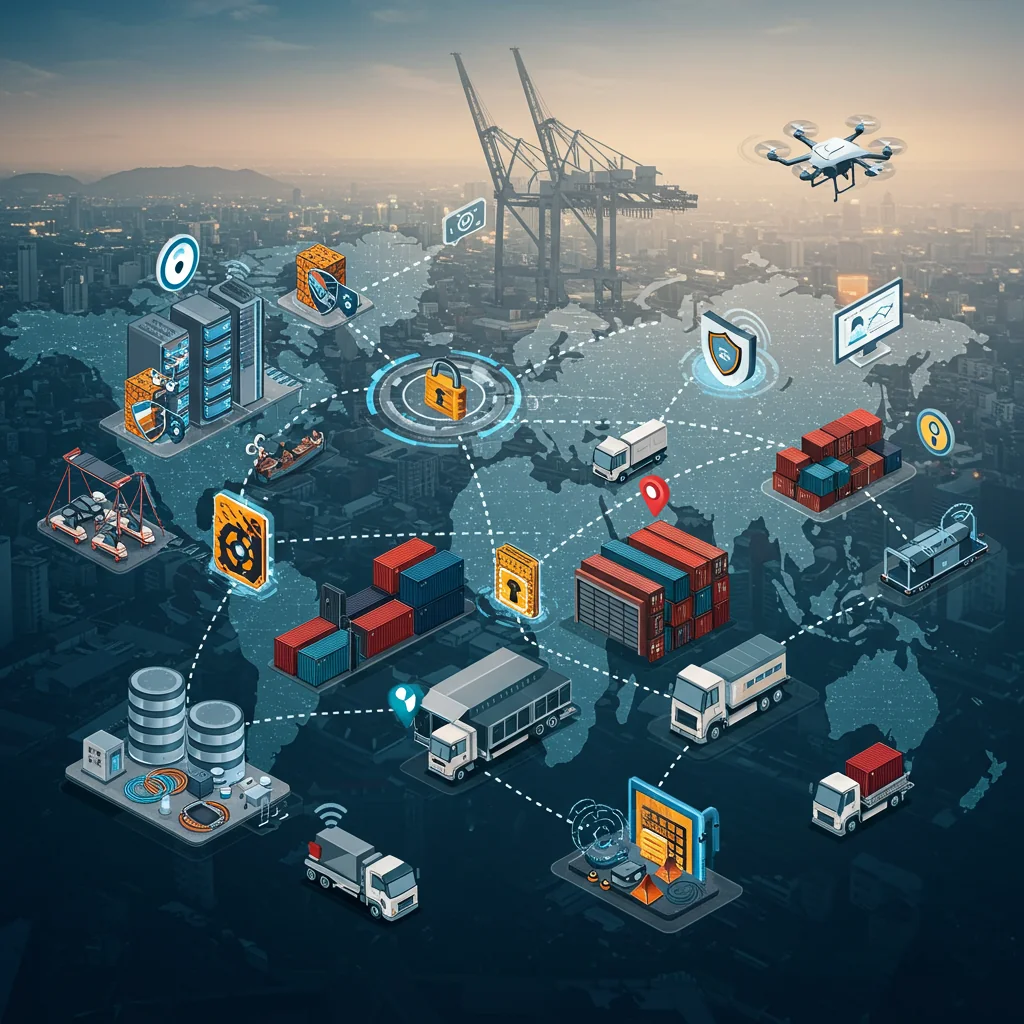Cybersecurity’s Role In Logistics

Logistics is the cornerstone of global trade and commerce, and the efficiency and reliability of its operations are crucial to both businesses and customers.
The rise of e-commerce, along with the increased use of technologies such as AI and automation, causes the logistics sector to face a growing set of challenges: securing networks and data systems from cyber threats.
In today’s world, cyber threats are a very prevalent issue, and the logistics industry has been a prime target due to its interconnected digital systems and the nature of the information it carries, such as sensitive customer data and financial records.
Cybersecurity ensures the protection of the systems and sensitive data in the industry, helping to safeguard against any risks or vulnerabilities.
Cybersecurity’s Importance In The Industry
Protection of Sensitive Data and Communication
Cybersecurity plays an integral role in safeguarding operations and protecting critical information. Cybersecurity attacks include malware, phishing, and ransomware, which can result in devastating consequences for all parties involved.
Without cybersecurity, data breaches can result in not only the loss of pivotal information but also severe financial loss for all parties, along with customer and partner trust.
It can also result in legal liabilities for shippers who ship internationally, especially if privacy regulations such as the General Data Protection Regulation (GDPR), a European Union regulation which protects a person’s rights related to how their data is used, are violated.
In addition to protecting data, cybersecurity secures real-time communication channels between vehicles, warehouses, suppliers, and customers, especially communication channels transmitted through the Internet of Things (IoT) and telematics.
By protecting communications from interference, tampering, or eavesdropping, the integrity of logistics operations is upheld.
Securing Operational Technologies and Threat Detection
The modern supply chain relies heavily on technologies such as autonomous vehicles, automated warehouses, and robotics to enhance the efficiency of operations.
The reliance on advanced technology will only continue to grow, increasing efficiency and heightening the threat of disruptions, hacks, or other safety risks. Cybersecurity measures can help against these elevated threats by securing these systems.
These measures play a crucial role in the early detection of these threats through firewalls, intrusion detection systems (IDS), and other security monitoring platforms.
By detecting suspicious activity in networks early and acting proactively, companies can prevent significant damage to their systems and ensure operational stability.

Supply Chain and Business Continuity Protection
A cyberattack that targets one part of a supply chain can have a ripple effect, disrupting the entire network. This is because the supply chain is interconnected, involving multiple stakeholders like suppliers, transporters, and customers.
So, it is inherently crucial that cybersecurity measures are implemented to help protect every part of the supply chain.
Blockchain technology, otherwise known as distributed ledger technology (DLT), is a decentralized database that allows for an uncompromisable and unchangeable record of transactions. In conjunction with cybersecurity tools, blockchain technology can assist in protecting every part of the supply chain.
Suppose a part of a company’s system is compromised. In that case, disaster recovery plans or backup systems can minimize downtime or data loss and allow them to maintain operations even in the face of disruption. The ability to utilize cybersecurity strategies to restore normal operations quickly is critical to avoiding significant losses.
Compliance with Regulations and Prevention of Cyber Threats
A vital component of cybersecurity protection is that companies comply with regulations to further prevent and protect themselves from cyber threats.
Along with General Data Protection Regulations, companies must adhere to the NIST Cybersecurity Framework (CSF).
NIST Cybersecurity Framework is a set of guidelines to help organizations manage and reduce cybersecurity risks by utilizing a structured system for protecting their systems and data.
Other steps, such as using antivirus software, regularly updating systems, and educating employees on cybersecurity, can assist in preventing the invasion of unwanted attacks.
As we step farther into the future, e-commerce, automation, and reliance on technology will become even more commonplace than ever.
With increased dependability on digital operations, the risk of cybersecurity threats also escalates, leaving companies vulnerable if they aren’t protected.
Cybersecurity in logistics is an integral step in not only safeguarding against cyberattacks, but also building a relationship of trust with customers and partners, as well as allowing the efficient flow of goods throughout the global supply chain without any disruptions.



